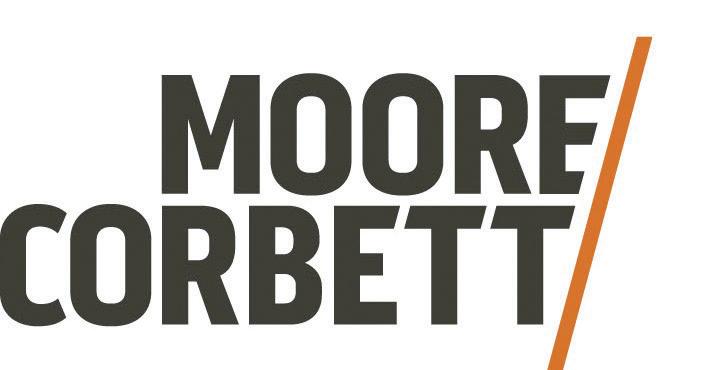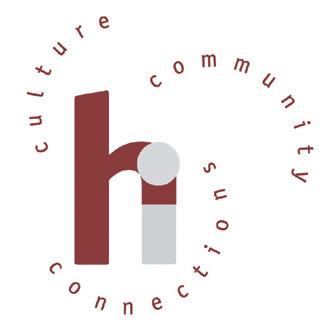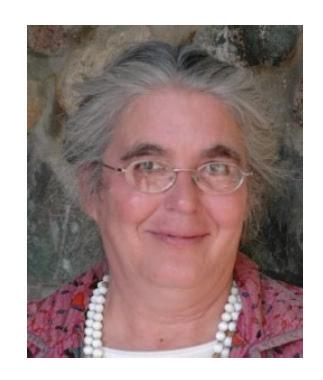Voices from the Prairie





Voices from the Prairie Contents
Sounding Our Place . . . 3
Songs of Healing and Community . . . 5
When a Book Becomes a Story . . . 6
The Revialization of Meskwaki Cattail and Bulrush Weaving . . . 7
New Board Members . . . 8
Grants Awarded in 2021 . . . 10
Statement of Activity . . . 10
2022 Donors . . . 11
c o V er: Dancers at the August Powwow at the Meskwaki Settlement in Tama, Iowa.
L-R: Bess Keahna, Mary Young Bear, LeAnn Morgan, Patricia Trujillo, Brenda Wanatee, Nina Young Bear. Pictured in the cattail mat-covered wikiup made by the local group of women weavers who brought back this traditional art of weaving to the community. Photo by Tashina Azure-Mitchell, Azure Sky Photography. Reproduced with permission.
Board of Directors & Staff
President
Richard Moeller, Sioux City
Vice-President & editor
Linda Shenk, Ames
s ecretary
Karen Mitchell, Cedar Falls
t reasurer
Steve Siegel, Ottumwa directors
Radhi H. Al-Mabuk, Cedar Falls
Peter Drahozal, Eldridge
Harry Dunstan, Marcus
David Eckert, Waterloo
Trevor Harvey, Iowa City
Elizabeth Hoover de Galvez, Des Moines
Kay Krekow, Marcus
Treyla Lee, Sioux City
Debra Marquart, Ames
Rosemarie Ward, Des Moines
Follow Humanities Iowa on Facebook, Twitter, and Instagram @humanitiesiowa
View our Facebook P age www.facebook.com/humanitiesiowa

t weets on e V ents and news twitter.com/humanitiesiowa

Follow us on i nstagram www.instagram.com/humanitiesiowa

Find news and information on speakers, grants, and ways to get involved with Humanities Iowa on our website: www.humanitiesiowa.org

Prairie
a cting e xecuti V e d irector
Heather Plucar
heather-plucar@uiowa.edu
a rt d irector
Sara T. Sauers
The mission of Humanities Iowa is to explore and celebrate the diverse people, communities, cultures, and stories of Iowa.
Join other Iowans and support Humanities Iowa. Donations are tax-deductible to the extent permitted by law. Humanities Iowa also accepts gifts of stock or securities. To make a donation or receive more information, please contact our office at 319-335-4149, email us at info@humanitiesiowa.org, or visit our website: www.humanitiesiowa.org.
Voices from the Prairie is published annually by Humanities Iowa and distributed to its friends and interested Iowans.
To subscribe, please contact us: Humanities Iowa
PO Box 881 Ames, IA 50010
phone: (319) 335-4149
fax: (319) 335-4154
email: humanities-iowa@uiowa.edu
www.humanitiesiowa.org
i n the s P ring o F 2022, artist and gallery owner of Mount Vernon Creates, Denise Murphy, issued a call to artists for “plein air” portrayals of Mount Vernon and Lisbon, Iowa. The French term, plein air, generally refers to paintings—most often landscapes— that are finished outdoors within view of the painting’s subject. Mount Vernon Creates expanded the call for the project, “Portrayal of Mount Vernon 2022,” to include other art forms. The call read as follows: “Join area artists as they use their creative skills to express their love of Mount Vernon and Lisbon, Iowa. Painters, photographers, sculptors, and other artists line the streets, parks, and Cornell campus demonstrating their craft.”
Dozens of artists came out to paint and create on the day of the event and submitted their work to the “Portrayal of Mount Vernon 2022” project, which went on display in an exhibition from May 8 through June 30, 2022. Three of the submitted pieces were also chosen to receive top honors. The three

I used to think Grant Wood’s perfect Iowa landscapes of rolling green hills like Young Corn and Haying were mere painterly exercises in optimism, romantic yearnings on canvas for a bygone era, until a few years passed and I drove enough Iowa roads, especially early morning and late afternoon journeys, and I saw Iowa at a certain angle, in a certain light—rows of symmetrical corn fields and rusted orange soybeans gleaming for harvest. Just as today driving Highway 1, a clustered city of brick buildings skirted by columnar cypresses and poplars rose in the distance. Through soft light at low angles, I passed meadows lit with gold, edged by low-lying mulberries and dogwoods, framed by sycamores and bur oaks, those deep green overseers who stand tall and guard the beauty.
d ebra m arquart
ekphrastic poems you see here were written in response to these award-winning works of art. The Greek word, ekphrasis, means “description,” and in Ancient Greece, the term applied to especially vivid writing that depicted a character or scene. However, more recently, ekphrastic writing has come to be known as a form of writing—most often poetry, but increasingly other prose forms— that depicts and responds to a work of art.
On June 12th, an enthusiastic crowd of artists gathered at Mount Vernon Creates to hear the announcement of winners and to listen to me read the ekphrastic poems. The gallery space was full of interested parties—not only the artists whose work graced the walls of Mount Vernon Creates, but also members of the community who came to hear music and poems. It was an eclectic and engaged audience. At the end of the event, we announced the three winners, each of whom came forward to be acknowledged as I read the poem based on their winning piece. In this way,
all afternoon, we shifted our attention from image to words to poetry to song and then back to image—in celebration of the many ways that art helps us experience and understand the rich world in which we live.
I had the opportunity to be a part of this day through a fellowship I had received from the Academy of American Poets (AAP), “Sounding Our Place.” For the fellowship, I had proposed creating a series of experiential events around the state of Iowa, partnering with naturalists and environmental workers to lead hikes and nature walks, followed by creative writing workshops in which participants could write about what they had just learned and experienced. These events did occur throughout the state, and, as often happens with collaboration, new ideas and opportunities formed along the way. Writing these ekphrastic poems was one of those delightful surprises. When Denise Murphy contacted me to see how I might tie my fellowship work into the “Portrayal of Mount
Vernon 2022” project, I suggested that I could write ekphrastic poems in response to the top vote-getters.
This day in Mount Vernon, and through my travels across the state offering the experiential writing workshops, I have found so many things in the state of Iowa that inspire my curiosity and wonder—especially in local history museums and in art museums around the state.
No matter what I write—poems, songs, essays—I always do a great deal of research, most of which never shows up overtly in the writing itself, but rather serves as a foundation of knowledge for me as I draft the work. In the case of the “Portrayal of Mount Vernon” poems, I researched the geology of the region, the flora and fauna of Iowa, the history of Pallisades Kepler Park, and the art of Grant Wood—all because the winning pieces alluded to these subjects. Reading these pieces
Twisted oak boughs frame the roof. Bare branches and twigs have grown over the unsmiling faces of the couple who once lived here. Grim and gothic, they are hemmed in now by thorny brambles, rusted chicken wire.

The arched attic window looks on through polka dot curtains, frayed from years of silent witness to the wife’s domestic efforts—the flowerpot
on the porch sill, the rickrack apron and cameo brooch, cookies baking,
to the artists attending the reception, I was reminded of how much we can learn about the world through interdisciplinary inquiry and engagement.
Mount Vernon Creates: https://www.mountvernoncreates.com/? page_id=16380
Debra Marquart website: https://debramarquart.com/poet-laureate/
no doubt, in the oven, a place made ready for company. It’s a wonder
no one ever visited. Her worried side eye glance reveals the reason—
the husband’s grouchy smirk and dead eye stare. Pitchfork still in hand, tines upturned and sharp. Behind them, the empty sky, cloudless and sunless.
d ebra m arquart
Based on Midwestern Regionalism, Cassidy Oates
So many things we think we need in this world when really all that’s required is this river and a dog, make that a bend in the river and an eager dog ready with the short stick he expects you to throw then throw again, as you amble along the banks of the Cedar River under canopies of white oak and basswood. On the other shore, limestone bluffs rise up, palisade cliffs once underwater sediment accruing 425 million years ago during the Silurian when all where you walk was shallow seabed, now risen up and crowding the horizon with red cedars and sugar maples, green maidenhair ferns and mossy liverwort. This place, so ancient, where you stop with your dog, who doesn’t know or care that a mammoth molar was once discovered here
or that nearby pre-historic mounds with unearthed pottery shards and flint knives suggest human habitation dating back millennia. Who needs to know these things to have the perfect day?
Cerulean warblers and scarlet tanagers may flit from branch to branch. A bobcat may crouch on an outcropping behind gooseberry and blink its green-gold eyes. Linger here, on this point
near the bend in the river. Throw the stick and watch your tongue-wagging dog retrieve it.
Based on Palisades Kepler 1, Doran Pearson

m y childhood was experienced in New Delhi and Mumbai in a singing household; my mom sang all the time while doing cooking and house chores. She also always sang a quick healing verse to me whenever I fell ill. I did not know its meaning. It was in Sanskrit, dating back from 8 c.e.—one of many traditional songs I would learn as I started formal training in South Indian Classical Carnatic Vocal Music at age 4.
Singing has been with me all my life, and after I left India for America in 1985, I kept up my practice because it was a soothing reminder of my mom. I sang that same healing verse to my own children when they fell ill. But what I never expected was that it would become part of my love of community here in Iowa. It was December 2008: I sang that same healing verse to a retired physician-scientist (endocrinologist Dr. Bob Bar) when he was undergoing surgery. I had met Bob when he became part of an organization I had founded called CARTHA (Collaborative Arts in Research Translation for Human Advancement), a name and acronym coined after the Sanskrit word for “Doer.” Bob and I both shared a dedication to CARTHA ’s mission of engaging individuals as Collaborative Doers for Humanity, and he encouraged me to keep exploring the intersections between singing and healthfulness.
That singing experience in 2008, and all that followed, changed everything for me. Ten years later, I conceived CARTHA ’s Musicality in Parks initiative. My dream was to have a Singing Nook built in a local park to activate the healing aspect of music within us and broadly share that across communities in ways that foster cross-cultural friendships and build supportive community. Music has been known to have an influence on health and healing. Given the extent of pandemicdriven loss and grief burdens, it is imperative for each of us to thoughtfully propose and find new strategies to reduce the level of unresolved grief and to increase coping skills in our communities of many backgrounds. Of much importance to me is instilling joy and healing—especially among younger children, parents, and caregivers—because the pandemic has been especially hard on our younger generations. Singing Nooks are a crucial part of that goal: they offer musically-diverse spaces to foster the development of coping
skills, creativity, and healing by connecting people intergenerationally and cross-culturally through music and memories.
My dream to have a Singing Nook in a local park is now a reality at Willow Creek Park in Iowa City, and CARTHA has begun to sponsor field trips to it for children of different ages. The first such gathering was in October 2021. The group was twelve twelve-year-old girls, many of them children of Sudanese and Congolese refugees under the care of Neighborhood Centers of Johnson County. On that chilly Iowa afternoon, I asked each of these girls to respond to the question: “What does music mean to you?” In their responses (pictured on this page), they wrote such connections as Dancing!, Confidence, A Way to Show Love and Emotions, and Stay Positive. The stunning variations in their responses made me recognize the value of additional programming. Since January 2022, we have developed with Tessa Musa and others, twohour “Inspiring Creativity” art workshops with musical/poetic guests, indoors and outdoors at the Singing Nook. For 2023, the partnership goal is to infuse the diversity of musicality throughout all of Neighborhood Centers of Johnson County’s programs!
In another new partnership with John Geyer and Kaite Ryan at Camp Courageous, CARTHA hosted this past fall the first two of many intergenerational musical gatherings for—and including—persons with disabilities at Rotary Music Park in Monticello. Humanities Iowa

image: Handwritten responses by children at Neighborhood Centers of Johnson County program to the question: What does music mean to you? Photo by

board member Elizabeth Hoover de Galvez was in attendance on October 2 and shared, “at one point, after Usha sang a song in her mother tongue, Tamil, one of the teen campers confidently echoed back a line from the song in the unfamiliar language. It was a beautiful moment of music transcending language and culture and connecting two very different people.”
Every humanitarian project requires the coming together of kindred spirits in a curiouslyorchestrated confluence of time. With Nitin Karandikar leading the CARTHA-Iowa Corridor Sangeet (ICS) community collaborative, we have addressed loneliness through the sharing of childhood musical memories (including through free concert events featuring old/ new Bollywood songs). In addition to being
grateful for the dozens of volunteers plus the financial support of private donors and local organizations in the Iowa City area, we are very appreciative of the fact that Humanities Iowa, Executive Director Heather Plucar, and Board members were among our earliest moral and financial supporters to enable the design and launch of so many of these programs that are continuing to expand and grow.
For you as readers of Voices from the Prairie: We hope you join us at future programs! During your next visit to Iowa City, please stop by the Singing Nook at Willow Creek Park.
Perhaps you could do a Singing Tribute to a beloved friend or family member who recently passed away. Perhaps you could sing childhood memories with a friend. And perhaps you will find a new friend singing there, too.
Let’s continue the conversation:
• Those of us at CARTHA would love to hear your thoughts about what music means to you. What is your favorite childhood song, and who taught it to you?
• I encourage each one of you to think about whether a Singing Nook exists in your neighborhood. If so, great: how could you
w e o F ten use the words “book” and “story” interchangeably, but the essence of the humanities suggests how distinguishing a story as something a bit different can be powerful. A book becomes a story when it moves off the page and becomes part of our experience, stirring our thinking, sparking our imagination, possibly even expanding part of who we are. In fact, in indigenous cultures, the notion of “storying” involves far more than the narrative that is told. Storying is connection, interaction, community.
This coming January, the Waterloo Public Library and Humanities Iowa are collaborating to offer a program in which books become stories. The program is called Prime Time Family Reading, and it is part of a whole network of partnerships that began with the Louisiana Endowment for the Humanities and now involves humanities groups across the nation. The Prime Time Family Reading program will be the first of its kind in Iowa.
When families come to the Prime Time at the Waterloo Public Library, they will gather together, share a meal, and then experience a book together such as John Scieszka’s True Story of the Three Little Pigs or Pete Seeger’s adaptation of the South African tale Abiyoyo One of the team members (in this case one of our own Humanities Iowa Board Members, Karen Mitchell) will read the book with all the energetic drama that makes people such captivating readers, and then a conversation begins. Another person (in Waterloo, UNI librarian Amandajean Nolte) will engage the group, particularly the families’ children, by
asking them open-ended questions about their experiences and ideas related to the book. Here, the book becomes a story.
The librarian and reader collaborate to devise questions they think will allow that particular community to connect the story to their own lives, allowing the book to inspire ideas and become part of their family’s stories and even the stories of everyone in the room that night. Mitchell, who has a background teaching literature in high school and college, is passionate about this approach: “It is at the heart of how the humanities enrich learning and enrich community. When the group contains adults and children, the discussion can be richly varied and wonderfully surprising. And younger children are included as well. They will be in a group with Gretta Berghammer, an emeritus UNI professor of theatre for youth. Every member of the family has a place in this program!”
Humanities Iowa is especially excited to bring this tested literacy program to the families in our state. The mission of Prime Time is to create the precondition for future learning among economically and educationally vulnerable families—historically underserved or never-served populations—through a humanities-centered family literacy program. Prime Time invites an audience of both children ages 3 to 10 who are experiencing difficulty with reading as well as their parents. The program is designed to overcome initial barriers to reading and encourage families to use the library’s resources or other programs and services a school’s Title I program may
promote new types of community partnerships and musical programming around that?
• If there is no Singing Nook, could you talk to your city manager and parks director to incorporate diverse and unique designs of outdoor musical equipment in park spaces?
• We welcome your suggestions, ideas, and feedback that could lead to new and more robust programming and meaningful community exchanges!
Usha R. Balakrishnan Founder & CEO, CARTHA85 Leamer Court, Iowa City, IA 52246
usha.balakrishnan@gmail.com/ 319-331-8103
provide. As Humanities Iowa’s Executive Director Heather Plucar explains, this combination of support and community has made it “so exciting to be a part of this experience. It is a whole night where a family can come, have dinner, and get to spend time together and with others. It is about families connecting with each other and connecting with the community.”
It is a commitment to the connecting power of story and to equity that inspired Plucar and Waterloo Public Library’s Director David Eckert to begin the partnership. “Any opportunity to foster the love of reading in children is always an avenue worth pursuing,” explains Eckert, “but the program is so much more than that. Its design brings families closer together through book discussions of humanities themes and helps to develop critical thinking skills.” This whole process allows words to lift off the pages and become the stories of who we are. And, as Mitchell explains, “When Humanities Iowa plants the seeds for a project like this, we are making a long-term investment; we bring young people and their families into conversation about how we can collectively grow a better world starting within our own families and communities. What could be a better investment for the future?”
Prime Time Family reading will launch at the Waterloo Public Library on Thursday, January 12th at 5:30pm–7:00pm. For more information, please contact Heather Plucar at heather-plucar@uiowa.edu or 319-335-4150.
a s i write this on a very chilly October morning on the Meskwaki Settlement in Tama, Iowa, I am also preparing to attend an Indigenous conference on tribal libraries and museums. I reflect on this journey of revitalizing a long-forgotten Meskwaki tradition and all of the people who have participated by my side. As I think back to how we began this journey, it feels like circumstance, but I believe it was simply time for the cattails and bulrushes to come home to our community.
The art of weaving cattails into panels that protected our Meskwaki winter homes is something that all women knew how to do—much like cooking and harvesting local plants and crops for food and medicines. However, approximately 50–60 years ago, we simply stopped making the cattail mats; we also stopped making bulrush mats, and there is no documentation as to why this happened. Nobody documented this change or mentioned this in our history. We do have old pictures, and there are some bulrush mats in museum collections. But almost nothing remained in our community to remind my generation of their existence.
Two events occurred simultaneously in our community by coincidence and are related by chance. First, the Meskwaki Cultural Center & Museum was hosting a series of traditional-arts classes, and one class was weaving bags with plant fibers. The other event was an opportunity for community members to help harvest cattails with members of the
Kickapoo tribe in Oklahoma. It was during my time on this trip that I was introduced to both harvesting cattails and seeing an actual traditional mat-covered home.

The Kickapoo traditional home in Oklahoma was similar to the traditional homes (wikiups) of the Meskwaki people that I had seen in old pictures. When Kickapoo women allowed us to assist with their harvest, they also let us bring cattails back to Tama, and, about a month later, they came to the Meskwaki community to show us how to make a cattail mat. Some of the women from our Meskwaki community who participated in the cattail mat-weaving session that weekend remain dedicated learners even now.
While learning cattail mat weaving hasn’t been easy, our group remains dedicated to retaining the methods, traditions, and protocols associated with this traditional art. We will continue to gather every week to weave and to maintain our traditional practices while bringing younger women into our project.


It is this dedication and tenacity that made it possible for the first time in 50–60 years for an old-style Meskwaki wikiup to grace our grassy powwow grounds in August of this year. The women of our weaving group made a decision to build a cattail mat-covered wikiup on the Meskwaki Powwow grounds that would stand for the duration of our annual event. With no fanfare, our cattail mat-covered wikiup stood alone throughout the four days of the powwow for our community to view and enjoy. Local photographer, Tashina Azure created an opportunity to use the wikiup as a background for local dancers to have their photographs taken, and the results were amazing. Through this learning process, our weaving group has grown closer, and we have developed a deeper respect for the Meskwaki women of the past. Cattail mat-weaving, bulrush mat-weaving and bone needle-making have come home to the Meskwaki community, and we will continue on our journey to make these traditional arts a permanent part of contemporary Meskwaki culture.
image abo V e: LeAnn Morgan & Nina Young Bear, members of the weekly weaving group, at work weaving the mats for the August powwow. Photo by Kristina Young Bear. Reproduced with permission.
image below: The weavers use bone needles to weave the cattails together. Photo by Kristina Young Bear. Reproduced with permission.
image le F t: The traditional, mat-covered wikiup built for the powwow. Photo by Tashina Azure-Mitchell, Azure Sky Photography. Reproduced with permission.
d r. r adhi h . a l- m abuk is professor of Educational Psychology at the University of Northern Iowa, a position he has held since 1990. Dr. Al-Mabuk served as the Department Head for four years and directed the Master’s Program in Professional Development for teachers for more than a decade. Currently, Dr. Al-Mabuk serves as the Director of the Ad Astra Institute in Chicago, formerly known as the Future Institute Research Center. This Center, which currently consists of nine research fellows, conducts research on the transitions students make from grade to grade, and from formal schooling into higher education and the world of work.
Dr. Al-Mabuk received his BA degree in Social Studies education in 1981 from St. Mary’s College (now University) in Winona, Minnesota, his Master’s Degree in Counselor Education in 1983 from Winona State University, Winona, Minnesota; and his doctorate in Educational Psychology with emphasis on human development and learning from the University of Wisconsin–Madison in 1990. Dr. Al-Mabuk’s current research interests are threefold: comparative education; academic transitions; and psychology of forgiveness and revenge.

When not involved in academic pursuits, Dr. Al-Mabuk enjoys traveling in and outside the United States, reading, wood-working, and hiking in his favorite Northern Minnesota trails.
d r. h arry d unstan , tenor, musicologist, accompanist, translator, stage director, lecturer, independent scholar, and raconteur, is the Founding Artistic Director of The American Center for Puccini Studies. From his earliest years, he always marveled at the transformative power of music. As a little boy attending church with his family in Tidewater, Virginia, he was always amazed how the majestic sounds of the pipe organ and the congregational singing could thrill, inspire, and transform. He learned early on that music, above all else, was to be experienced! He also understood, because he felt it, that the mere experience as a listener was enough to transport him. Those early musical/spiritual encounters led to a lifetime of loving music and a continuing, abiding, profound appreciation for the healing and regenerative powers that music offers humanity. With full confidence, he believes that we move through life as creations of spirit having human experiences within “the song of life.” Nothing speaks to this existence more than music, and nothing has the power to raise our vibration and heal us more than music. Music forces us to remember and experience our latent spirituality and enables us to heal ourselves and others as we evolve to greater creations.
Dr. Dunstan was awarded a Ph.D. “With Distinction,” (back when that actually meant something) in Historical Musicology from Catholic University, and he also holds a Masters’ Degree in Vocal Performance from Catholic University, and a BA in Music History from Old Dominion University. He serves as a consultant to opera companies, conductors, and musicians on every continent, save Antarctica, and has been a musical advisor to renowned movie producer, Peter Jackson. Dr. Dunstan has translated rare Italian, French, and German texts; recovered

obscure performing editions of operas and brought them to dramatic life on the stage; and championed the great universal humanity of Puccini’s music through the work of the American Center for Puccini Studies. He has transformed lives with his voice, his teaching, and his BBQ, and has enabled thousands of people to find unexpected relevance and beauty in the classical music art form.
In addition to his international reputation as a Puccini singer and scholar, Dr. Dunstan also presents seminars on Music and the Emotional Brain in the burgeoning field of Neuro-Aesthetics. His far-ranging interests include music, music history, anthropology, neurology, philology, mythology, phenomenology, (lots of other subjects that end in “ology”), linguistics, theatre, comparative religion, sports, wine, and every kind of BBQ ! He is also probably the only Musicologist ever accused of being “too funny”! He believes that as humans we are most set apart by our unique abilities to make music, cook, and, above all, treat and heal those that are ill. As we move through life as creations of compassion, and seek to nourish “body and soul,” Dr. Dunstan believes that our greatest guide and animating force is music.
d a V id e ckert has been working in the field of librarianship for more than twentyfive years. After completing the Library Science Master’s program at Kent State University, he worked for three years as a music reference librarian at Samford University in Birmingham, Alabama, before moving abroad to serve as a school librarian for a pre-K through 12th grade bilingual school in the Dominican Republic. Upon his return to the United States, Mr. Eckert started as a teen librarian in the Camden County Library System in New Jersey and rose to the position of head of youth services. In late 2007, Eckert moved to Jonesboro to take over the position of assistant library director at the Craighead County Jonesboro Public Library, a position he held until becoming the director in July 2013. In January 2022, Mr. Eckert became the director of the Waterloo Public Library in Iowa.

k ay k rekow, soprano and accompanist, is the Managing Director of The American Center for Puccini Studies and an internationally acclaimed interpreter of the operatic heroines of Giacomo Puccini. Described as one of the finest Puccini sopranos of her generation, she has sung world premieres and standard operatic and oratorio repertoire at The Kennedy Center, Carnegie Hall, and The National Cathedral, as well as in Germany, Italy, and the Czech Republic. She has murdered villains; thrown herself from tall buildings; stabbed herself to end it all; died of consumption, thirst, grief, and mysterious opera death; become a vengeful dancing zombie bride; had tragic love affairs; poisoned herself; run a saloon; and also ridden off on a million dollar stallion into the sunset to live happily ever after … all in the name of opera!

Raised on a farm in Iowa—to which she has now returned—she can drive a tractor, plow a field, ride a horse, milk a cow, slop a hog, hang a shelf, bake a blue-ribbon peach pie, and then sit down and play and sing a Puccini opera. A graduate of Stephens College, Ms. Krekow received a BFA in Vocal Performance and a minor in Music Education and Organ. Additional studies brought her to the East Coast and she has since been in constant demand as a singer, voice teacher, and accompanist, although she is most beloved for her cooking skills and Sunday afternoon croquet parties. Ms. Krekow (who is also Mrs. Dunstan) is a specialist in the vocal music of women composers and has presented concerts featuring the poetry and music of women troubadours, songs of the women of the Italian Renaissance, the works of 19th-century opera divas, and is a frequent recitalist presenting her original program, She is Music: a thousand years of vocal music by women composers (SheIsMusic.com). She was recently inducted into her hometown’s Hall of Fame for her lifetime of musical and educational achievements … yes, you CAN go home again!
d ebra m arquart is a Distinguished Professor of Liberal Arts and Sciences at Iowa State University and Iowa’s Poet Laureate. She is the Senior Editor of Flyway: Journal of Writing & Environment. In 2021, Marquart was awarded a Poets Laureate Fellowship from the Academy of American Poets.

Marquart’s work has been featured on NPR and the BBC and has received over 50 grants and awards including an NEA Fellowship, a PEN USA Award, a New York Times Editors’ Choice commendation, an Arcus Center for Social Justice Fellowship, and Elle magazine’s Elle Lettres Award. Marquart teaches in Iowa State University’s interdisciplinary MFA Program in Creative Writing and Environment and in the Stonecoast Low-Residency MFA Program at the University of Southern Maine.
A memoirist, poet, and performing musician, Marquart is the author of seven books including an environmental memoir of place, The Horizontal World: Growing Up Wild in the Middle of Nowhere and a collection of poems, Small Buried Things: Poems. Marquart’s short story collection, The Hunger Bone: Rock & Roll Stories drew on her experiences as a former road musician. A singer/songwriter, she continues to perform solo and with her jazzpoetry performance project, The Bone People, with whom she has recorded two CD s.
Marquart’s most recent book, The Night We Landed on the Moon: Essays Between Exile & Belonging, was published in 2021, and her poetry collection, Gratitude with Dogs Under Stars: New & Collected Poems is forthcoming from New Rivers Press in 2022.
dubuque
Clarke University — $1,021
cedar F alls
Iowa Museum Association — $10,000
des moines
Poetry & Poetry Palooza! — $10,000
i owa city
CARTHA — $3,000
Iowa Writers’ House — $7,000
indianola
Des Moines Metro Opera — $22,500
sioux city
Siouxland Public Media — $10,000
waterloo
Hawkeye Community College — $25,000

ames
Iowa State University — $7,500
Octagon Center for the Arts — $3,000
boone
Iowa Railroad Historical Society — $5,000
cedar ra P ids
Linn County Historical Society — $7,500
council blu FF s
Wild Prairie Winds — $2,922
da V en P ort
German American Heritage Center — $10,000
Figge Art Museum — $10,000
Great Sounds Productions — $3,000
dubuque
Dubuque Arts Council, — $10,000
Julien International Film Festival — $3,000
Loras College — $1,500
e lk h orn
Museum of Danish America— $5,000
iowa city
CARTHA — $5,000
Brink Literary Journal — $4,894
The James Gang — $1,463
st. ansgar
St. Ansgar Community Betterment — $3,000
sioux city
Siouxland Institute of Film — $9,750
Tolerance Week — $5,000
Michael Abrams
Melanie Alexander
Mrs. Donald Allgood
Violet Baker
Susan Berger
Neil Bernstein
Ronald Blair
Sheila Borg
Larry and Janice Bortscheller
Gail Bosch
Chett and Suanna Breed
Margaret Brennan
Junius Brenton
Susan Bryant
James Burnham
Richard and Ann Burton
Daniel Campion
Richard Carlson
Cynthia Charlton
Jim and Judy Cottingham
Carolyn Danner-Walls
Ray and Linda Davis
Thomas Dean
Gerald Depew and Dorothy Lamberti
Judy Dietrich
DNE Caplan Family Foundation
Dover Historical Society
Harry Dunstan and Kay Krekow
Carol Eckey
Ronald and Barb Eckhoff
Roy and Averyle Ehrle
Carrie Eilderts
Ann Ernst
Sandra Eskin
Timothy Fay
William Feis
Martin Fletcher
Michael and Carolyn Forbes
G. Francione
Elizabeth Garst
Virginia Gee
Daniel Gilbert
Gretchen Graff
Mary Lynn Grant
Carol Gronstal
Joan Haack
Ted and Dianne Haas
Lorraine Habben
David Hamilton
Trevor Harvey
James P. Hayes
Patrick Hazell
Ken Hazen
Jeff and Cindy Heland
Hills Bank
Erika Holeshoe
Elizabeth Hoover de Galvez
Marsha Hucke
Iowa Railroad Historical Society
D.E. Johnson
Doug Jones
Gary Kelin
Margaret Kiekhaefer
Dr. James and Mary Ellen Kimball
Marjorie Kline
William Koch
Ken Kuntz
Dr. and Mrs. Randall Lengeling
Bruce Leu
Phyllis Lewis
Michael Lewis-Beck
William Lieb
James Liewer
Henry and Sherry Lippert
Marcia Lohmann
Dennis Magnuson
Mary Markwalter
Martin Brothers Distributing Co., Inc.
Marcia McKelvey
John Menninger
Kurt and Paula Meyer
Douglas Midgett
Carolyn Miller
Milo Public Library
Karen Mitchell
Richard Moeller
Mary Moniz
Moore Corbett Law Firm
Jane R. Morrison
Mark Neary
Margaret Nelson
Nancy Nickerson
Mary Lynn Noble
Carrie Z. Norton
Sandra Norvell
Russell Noyes
Roger Ossian
Arnold Outzen
Chris and Heather Plucar
Edward Popelka
James Ragan
Larry Render
Arthur Roche
RPC Inc, Charitable Foundation
Gerard and Carolyn Rushton
Dick and Jane Sanford
Thomas Schenk
Mark Schmidt
Linda Shenk
Steve Siegel
Larry Simons
Cynthia Smith
Eldon and Mary Snyder
Bruce Sorrell
Mark Stein
Michael Sternfeld
Larry Stone
Dawn Taylor
John and Lisa Thedens
Dr. Richard Thomas
Mary Lynn Timp
Rose Vasquez
Rhoda Vernon
Michael Welsh
Linda Wild
Ann Wilson
Ron and Joy Young
S.A. Yunglas
Gail Zlatnik
Humanities Iowa
PO Box 881
Ames, IA 50010
Donate today!

www.humanitiesiowa.org


“I especially appreciate Humanities Iowa because of its focus on rural Iowa. The Speakers Bureau is a fabulous resource for small town librarians and their patrons. Grant applications are easy to use, and the staff works hard on rural outreach for its programs.”
e lizabeth g arst
